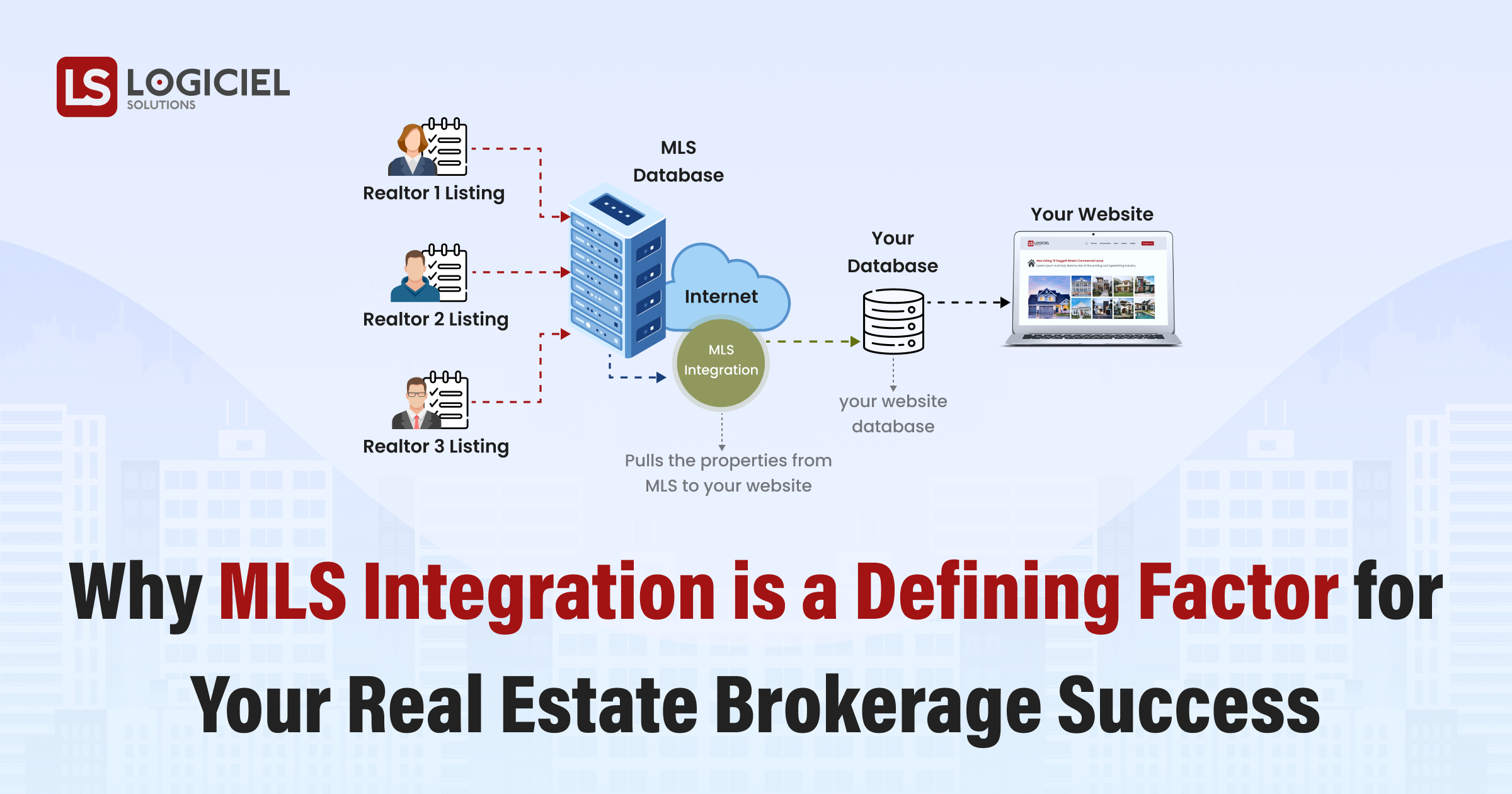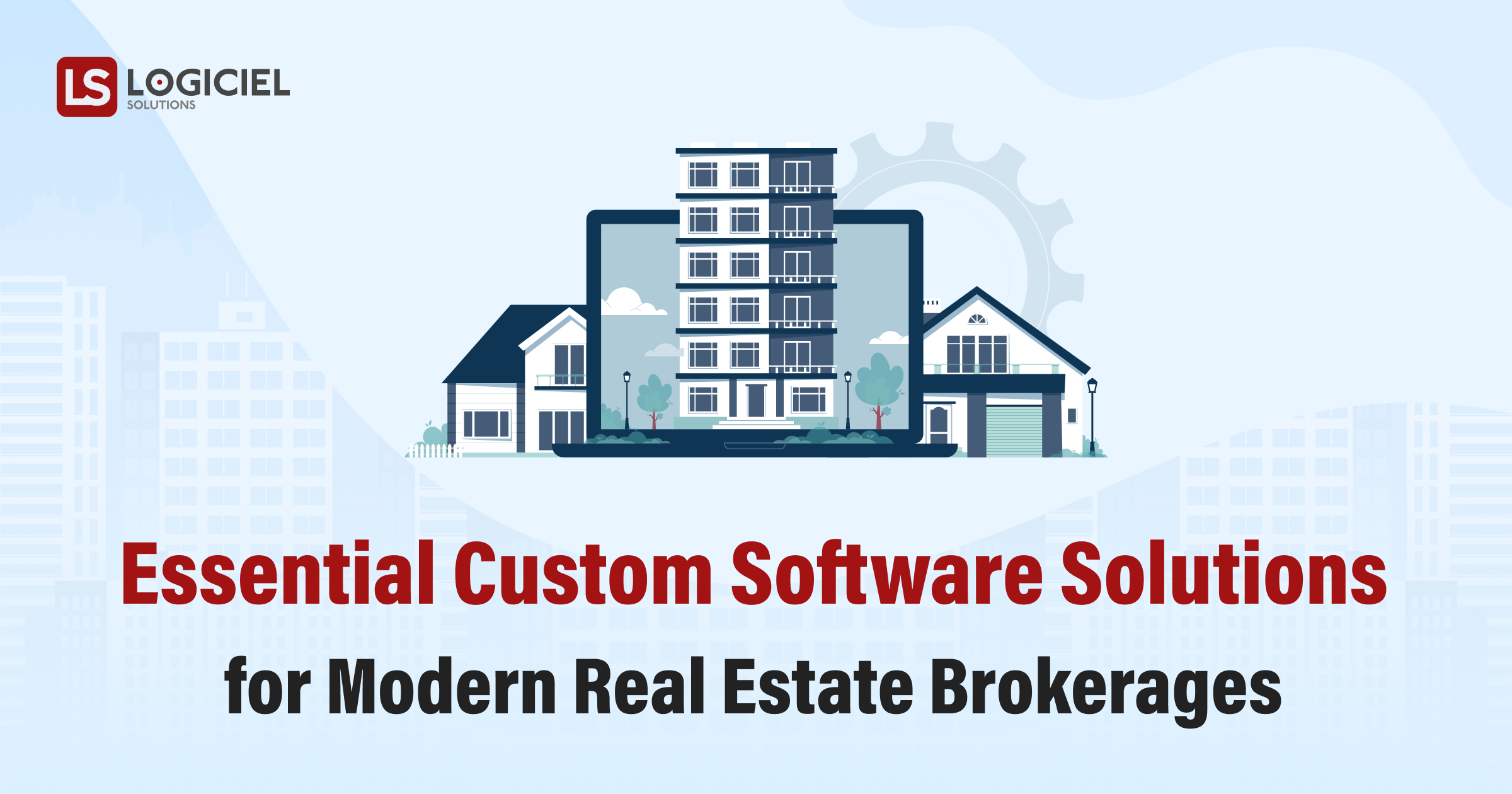There was a time when real estate professionals had to manage multiple disconnected tools such as CRM systems, listing platforms, contract management software, and lead tracking solutions – just to handle daily operations.
This inefficiency and time-consuming nature of traditional real estate practices led to the emergence of Custom Real Estate Software Development.
Earlier real estate experts didn’t have many options to run their property business, they either had to use an enterprise software system or a niche software product to run daily operations.
Since these tools were limited to some specific features or tasks, they were not very helpful for them to manage their hectic work schedule. The professionals had to spend a lot of time learning and adapting to each tool’s mechanism.
It was in the early to mid-2010s when the boom started for Real Estate Software Development to address and fix such challenges. Because custom software applications are tailored to the specific requirements of the businesses, they allow real estate professionals to streamline their operations, enhance client interactions, and improve overall efficiency.
In this blog, we will walk through the Real Estate Software Development Process in detail. Let’s get started with a quick definition of what it is:
What is Custom Real Estate Software Development?
For real estate brokers and agencies, time is money. You can’t afford to waste precious hours wrestling with off-the-shelf solutions that don’t align with your workflow. Custom real estate software development changes the game by providing a platform built specifically for your business’s needs. Whether you need to manage listings more effectively, automate marketing efforts, or track client interactions, a custom solution can be the key to improving efficiency and staying competitive.
Unlike generic software, custom development offers flexibility and scalability, allowing your business to grow without being hindered by technological constraints. With a custom solution, you’re not trying to fit a square peg into a round hole, your software is designed to work for you, not the other way around.
Why a Custom Real Estate Software is Critical for Realtors
While some off-the-shelf products may seem convenient, they often come with limitations that can be a roadblock to success. Pre-made software systems might cover certain needs but rarely provide a comprehensive solution. Real estate businesses are dynamic; you need software that can adapt as your business evolves.
A custom-built platform ensures that your software grows with your company, offering seamless integration with your existing tools, personalized features tailored to your unique processes, and the ability to scale efficiently. Instead of being locked into a rigid system, you can have a flexible, evolving solution that continuously supports your operations.
How to Choose a Custom Real Estate Software Development Partner
Once you have your initial roadmap ready for your product development, choosing the right development partner is the next and very crucial decision you have to make. Here’s how you can approach it:
1. Define Your Needs
Start by clearly outlining your business goals. Are you looking to improve your lead management system? Automate your marketing? Or perhaps streamline property listing processes? Knowing what you want will help guide your selection process.
2. Research Partners
Once your needs are clear, look for a Real Estate Software Development service provider with a solid track record. Review their previous work and look for case studies or client testimonials to ensure they’ve delivered successful projects similar to yours.
Real Estate Software Development Process
1. Design & Development Process
Once you’ve chosen a partner, the design and development process begins. A good team will translate your ideas into a tangible, effective system. This stage includes research, planning, design, coding, and regular feedback loops to ensure everything meets your expectations.
2. Testing & Refinement
Before launching, thorough testing is essential to ensure everything runs smoothly. Performance testing at each phase helps catch potential issues early, making the final product robust and reliable.
3. Ongoing Support
The development process doesn’t end at launch. Continuous support is essential to ensure the software remains up-to-date, secure, and optimized as your business grows.
The Benefits of Real Estate Software Development
1. Improved Efficiency
Custom software is designed to optimize your workflow, automate repetitive tasks, and enhance productivity. By streamlining these processes, you free up time to focus on what truly matters, serving your clients and closing deals.
2. Scalability
As your business expands, your software also needs an update. A custom solution is built with scalability in mind, ensuring that your platform can handle increased demand without slowing down or requiring costly upgrades.
3. Competitive Advantage
Offering a superior user experience can set you apart from the competition. With custom software, you can create an intuitive, seamless experience for both your team and clients, helping you build a loyal customer base and strengthen your market position.
Wrapping Up
Real Estate Software Development is not just a luxury, it’s becoming a necessity in today’s competitive market. By investing in a solution that’s designed specifically for your business, you unlock the potential for greater efficiency, scalability, and customer satisfaction.
Whether you’re looking to automate workflows, enhance client experiences, or future-proof your operations, partnering with a trusted technology partner for Real Estate Development Software is the first step towards achieving long-term success.




